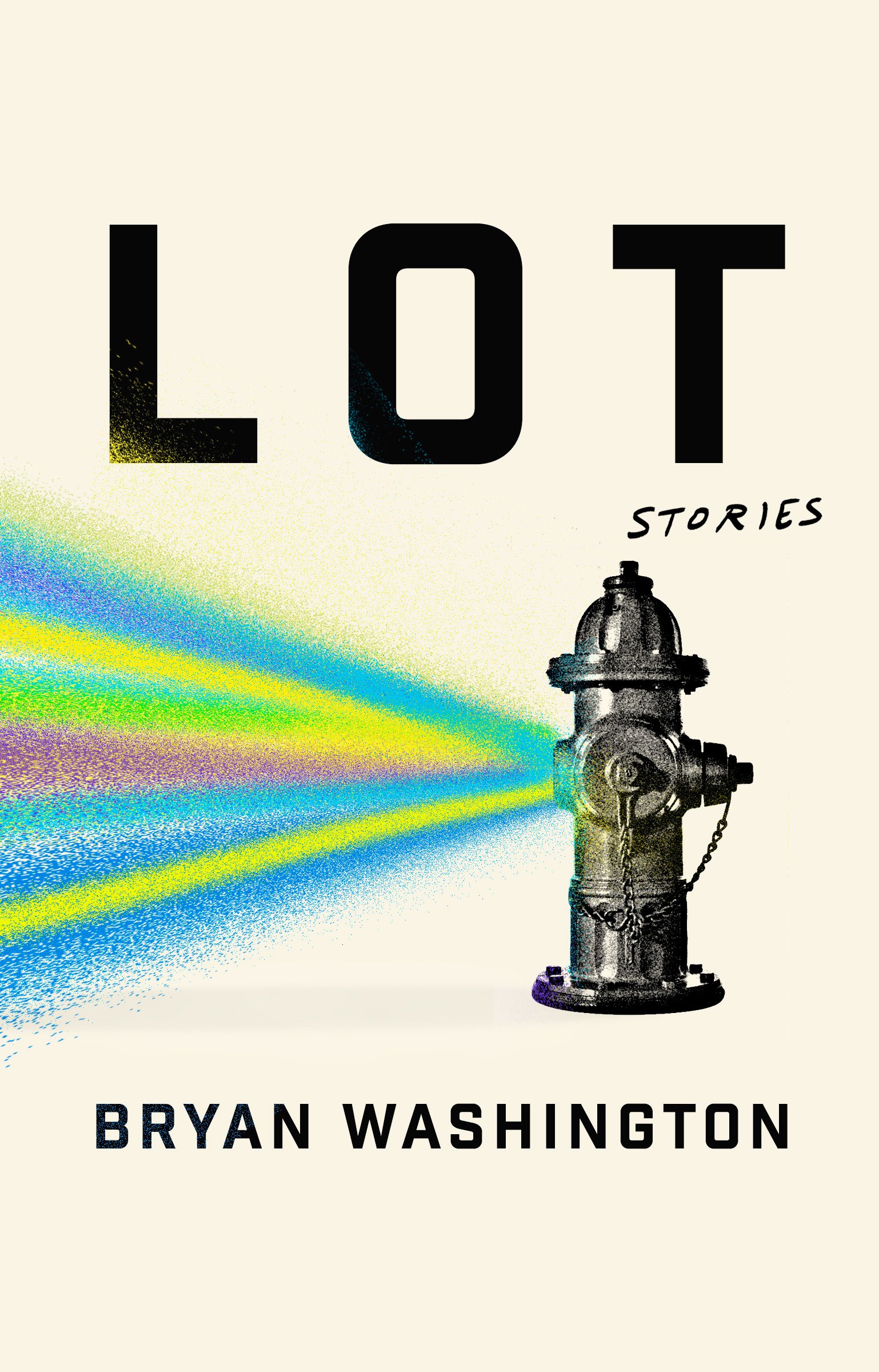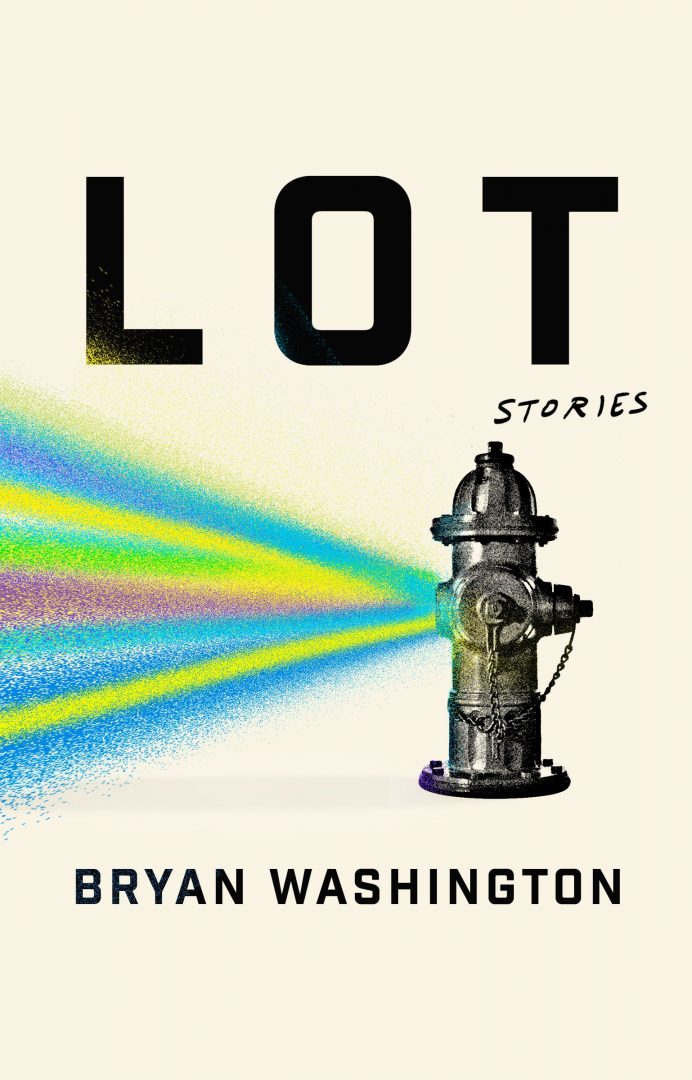‘Lot’ by Bryan Washington

Author: Michael Kaler
April 1, 2019
Introspective and understated, Lot gives voice to the silenced pain of Houston’s Black and Latinx working class. The collection of thirteen linked short stories alternates between tracking an unnamed narrator’s coming of age and exploring the diverse experiences of the boy’s fellow Houstonians. In terse prose, author Bryan Washington fully renders the inner lives of gay men struggling to endure the hardships of poverty and racism, while also sketching a nuanced portrait of a rapidly gentrifying city.
The collection opens with the compelling “Lockwood,” a short tale recounting the Afro-Latino narrator’s sexual awakening. “Too dark for the blancos, too Latin for the blacks,” the narrator had few friends as a preteen. When an immigrant family from Mexico moved into a neighboring apartment, he quickly formed a close bond with the “pimply” son Roberto. Again and again the two boys furtively “tugged each other,” until one day Roberto and his family found themselves evicted “suddenly and without warning.”
The story signals what lies ahead. Sexual shame and longing play out against the background of a working-class neighborhood defined by financial instability and cultural intermingling; the threats of gentrification, the police, and displacement darken the daily routines of the neighborhood’s denizens.
Elsewhere, the collection fleshes out the nameless protagonist’s relationships with his family members. In “610 North, 610 West,” he recollects how his father, who would later abandon the family, once took his son to see his mistress. “She smelled like cinnamon,” he remembers, “and she was plain—plainer than plain.” “Wayside,” taking place a few years later, explores the boy’s fraught bond with his older brother Javi, who wanted nothing more than to teach him “what happened to fags.”
Washington excels at emotional subtlety. In spite of the stories’ sensational premises, the dialogue is spare, the prose minimalist, the scenes tightly plotted. The narrator describes his family’s homophobia and dysfunction from a detached perspective that implies, rather than states, how hurtful he found both. “I told Javi to take it back,” he simply says, recalling a time he heard his brother call a close friend “[a] know-nothing faggot.”
The title story sensitively portrays the family’s loss of their restaurant, highlighting the emotional toll of gentrification. “The neighborhood’s changing,” the narrator’s mother quietly regrets as she signs off the lot to a realtor. The now-teenaged narrator lashes out at his family’s acquiescence, fighting with them frequently and dropping out of community college. The decline and fall of the restaurant plays out in tandem with the sudden death of Javi, heightening the story’s pathos and making it the strongest in the collection.
“Lot” tragically marks a turning point for the worse in the protagonist’s life. Signaling that his narrative arc, may not end in triumph but despair; the present from which he summons these memories is as bleak as his past, and the future offers little hope. By the final story, “Elgin,” the narrator’s life is in a precarious position and his relationship with his mother is fraught. “No one could have known you’d turn rotten,” she tells him in an emotionally charged exchange.
The seven tales in the collection that don’t focus on the prime narrator represents Houston as hell bent on souring the lives of working-class Black and Latinx people. “Alief” centers on an interracial love triangle that ends in each member’s ruin, while “South Congress” looks at a pair of drug dealers’ high-risk work. These well considered stories broaden the scope of the collection, examining varied parts of Houston, and while strong, many aren’t as memorable as those of the main plot.
The exception is “Waugh,” which rivals “Lot” in terms of craft and unfolds at a mesmerizing pace. The penultimate story follows a hustler named Poke and his friends as they navigate the dangers of sex work and respond to news that their pimp has contracted HIV. In a short amount of space, Washington treks across the city’s myriad streets and vividly depicts the small group’s close-knit community.
The collection’s depiction of Houston is expansive but abstract. Washington explores broad swaths of the city, and he brings to life an eclectic bunch of personalities. His minimalist style is understandably light on sensory details, though, and it doesn’t lend itself well to evoking a strong sense of atmosphere. Instead, the collection offers a series of powerfully affecting character studies. We see, through snapshots, how a place can shape destiny.
Through a portraitist lens, Lot expertly charts Houston’s social life and power dynamics, photographing the city at a moment of rapid development. Bryan Washington has a knack for writing subtle stories with impactful endings, and his career seems poised for success.
Lot
By Bryan Washington
Riverhead Books
Hardcover, 9780525533672, 222 pp.
March 2019

